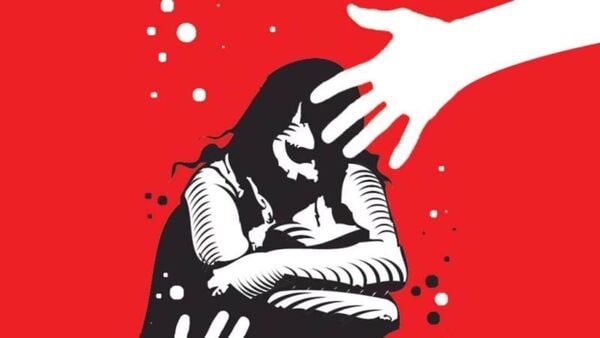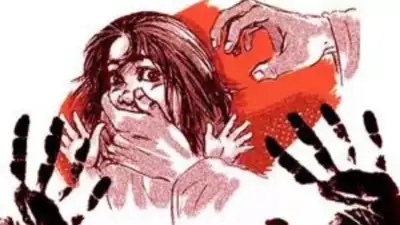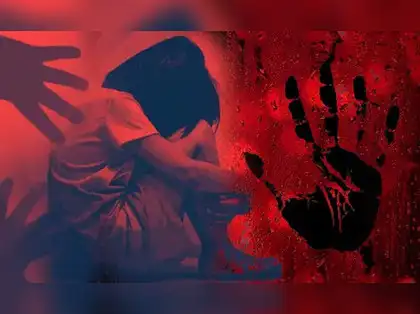🔴 Law Student Raped at Kolkata College: A Grim Reminder of Women’s Safety in India
On June 26, 2025, a shocking incident at a reputed law college in Kolkata has once again shaken the conscience of the nation. A young female law student was allegedly raped on campus by one of her classmates. As the news spread across the country, it has sparked widespread outrage, heartbreak, and a pressing question—how safe are our women, even in educational institutions?

📌 What Happened?
According to police sources, the incident took place late in the evening on June 24. The girl was reportedly invited to a secluded room on the college premises by a friend, where the main accused—a fellow male student—was waiting. It is alleged that her drink was laced with a sedative, rendering her semi-conscious. Taking advantage of her condition, the accused raped her.
The next day, the girl was admitted to a hospital in a distressed state. Doctors, suspecting foul play, alerted the authorities. Upon further questioning, the girl revealed the horrifying details. An FIR was lodged, and the accused was arrested. He is now facing charges under various sections of the Indian Penal Code (IPC), including Section 376 (rape).
📣 Campus Safety: Just an Illusion?
Educational institutions are meant to be safe havens—places where students, regardless of gender, can grow, learn, and flourish. Unfortunately, for many women in India, college campuses have increasingly become spaces of fear rather than freedom. Despite the presence of surveillance cameras, security guards, and anti-harassment policies, incidents like these continue to happen.
The question is: are these policies merely performative? If a law college—where students are taught about justice, rights, and the Constitution—can become the site of such a horrific crime, then what message does that send to society?

⚖️ The Legal Framework: What Does the Law Say?
In India, rape is considered a serious criminal offense under Section 376 of the IPC. If convicted, the offender can face up to 20 years of imprisonment or even life imprisonment. If the crime is committed within a place of trust, such as a school or college, the punishment is often more severe.
In this case, the accused has been charged under IPC Sections 376 (rape), 34 (common intention), and 120B (criminal conspiracy). While the legal process is underway, the courage shown by the victim in coming forward deserves recognition and societal support.
🧠 Psychological Impact and Victim-Blaming Culture
For any survivor of sexual assault, the trauma is not only physical but also deeply emotional and psychological. The experience often leaves behind scars that last a lifetime—self-doubt, fear, anxiety, depression, and a sense of isolation. What makes it worse in Indian society is the rampant victim-blaming culture. Questions like “Why was she there?” or “What was she wearing?” surface more often than questions about the perpetrator’s behavior.
This toxic mindset must change. A victim is never to blame. Our support, empathy, and action must lie with the survivor, not against her.

🏫 The Urgent Need for Prevention in Colleges
The incident in Kolkata is not isolated. There have been multiple reports across the country of sexual harassment and assault in educational spaces. Preventive measures must be implemented and enforced strictly:
- Mandatory Gender Sensitization Programs
All colleges should introduce regular gender training sessions to help students understand consent, boundaries, and respectful behavior. - 24/7 Helplines and On-Campus Counselors
Institutions should provide professional counseling services and helplines that students can contact confidentially. - Improved Security Infrastructure
Surveillance cameras, female wardens, and security guards must be functional and monitored. - Strict Anti-Harassment Committees (ICC)
Internal Complaints Committees should be more than names on a paper. They must act swiftly and fairly on all complaints. - Promote Open Discussion
Cultural events, debates, and workshops can encourage students to speak up and break the stigma around reporting sexual crimes.
🙏 Role of Government and Administration
Following the incident, the West Bengal state government has promised strict action. An SIT (Special Investigation Team) has reportedly been formed to probe the matter. Education Minister of the state has said, “This is a matter of shame. We will take the strongest possible action.”
However, promises are not enough. Citizens demand visible change. Policymakers and educational leaders must go beyond lip service and create real change that ensures a safe environment for all students, especially women.
🌐 Social Media and Public Reaction
The incident has gone viral on social media, with hashtags like #JusticeForLawStudent and #StopCampusCrimes trending. People are expressing shock and outrage, demanding swift justice and stricter safety measures.
One user tweeted: “If a law college is not safe, where is? Justice delayed is justice denied.”
Another wrote: “This is not just one girl’s story—this is a wake-up call for all of us.”
🧭 Where Do We Go From Here?
This tragic case brings to light the deep flaws in our societal and institutional structures when it comes to women’s safety. While punishment is necessary, prevention is equally vital. We must:
Educate young minds early about consent and respect
Encourage survivors to speak without shame
Hold institutions accountable
Demand zero tolerance from authorities
And, most importantly, change our collective mindset
🔚 Conclusion: Let Education Be Empowering, Not Fearful
The Kolkata law college rape incident is a horrifying reminder that we are far from achieving true safety and equality for women. It also reflects how even the most “educated” spaces can harbor darkness when basic human values are ignored.
We must transform our educational institutions into spaces of freedom, dignity, and justice. Let us stand with the survivor. Let us demand change. Let us build a country where no woman ever has to fear walking into her own college.
✍️ Author’s Note:
This article is not an attack on any specific person or institution, but rather a call to reflect, to act, and to protect. The time to act is now—before another girl has to live this nightmare.